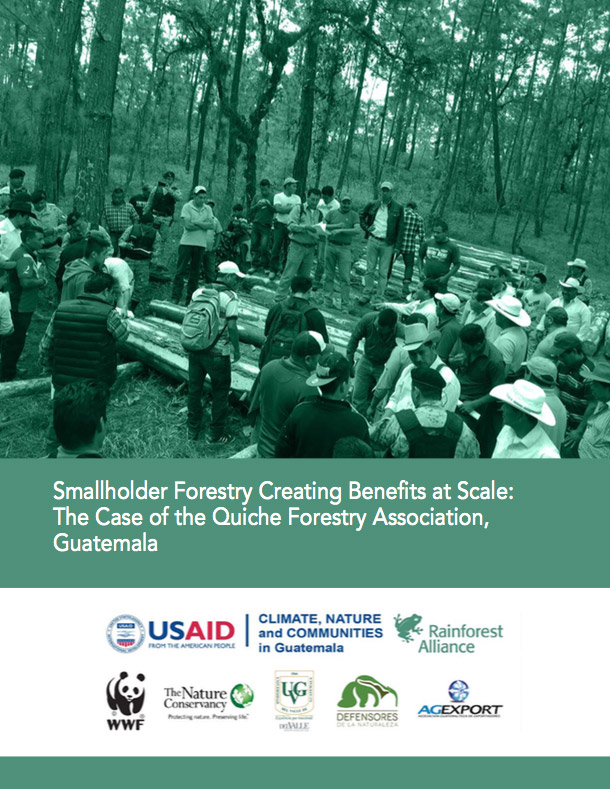Smallholder Forestry Creating Benefits at Scale: The Case of the Quiché Forestry Association, Guatemala
Guatemala is a global leader in community forestry, having devolved control over forest resources to local actors in many parts of the country.
While the Maya Biosphere Reserve’s community forestry concessions are well-known, a host of smaller forest-based enterprises in other parts of the country is taking on increasing importance. These enterprises, though incipient, are already producing significant benefits for local producers, many of whom are indigenous Maya; they are also restoring ecological values in often degraded landscapes. A history of marginalization and continuing high poverty rates amongst indigenous groups in such areas, as well as extreme vulnerability to climate change, underscore the importance of cultivating sustainable forest enterprise.
This case study focuses on Quiché Forestry Association (AFORQ by its Spanish acronym), which works with smallholder forest producers in the department of Quiché, in Guatemala’s Western Highlands region. With the support of USAID, the Rainforest Alliance-led Climate Nature and Communities in Guatemala (CNCG) project has been working with AFORQ since 2014. Given AFORQ’s significant progress, and recognizing the many challenges that remain, it is an important moment to analyze the results of CNCG support to date. The findings here also have relevance beyond Guatemala, particularly for similar associations of smallholder forest producers in other parts of the tropics.
The central finding of this case study is that smallholder forestry associations can dramatically improve incomes over a relatively short period of time by adopting a market-oriented approach that targets preferred buyers and cuts out middlemen. Income improvement, in turn, can motivate foundational change in areas of organizational governance and management capacity with support through technical assistance. While building up the internal capacity for service delivery and business administration, it is critical to ensure that revenue increases are passed on to smallholder producers, and not solely captured by the association itself.
